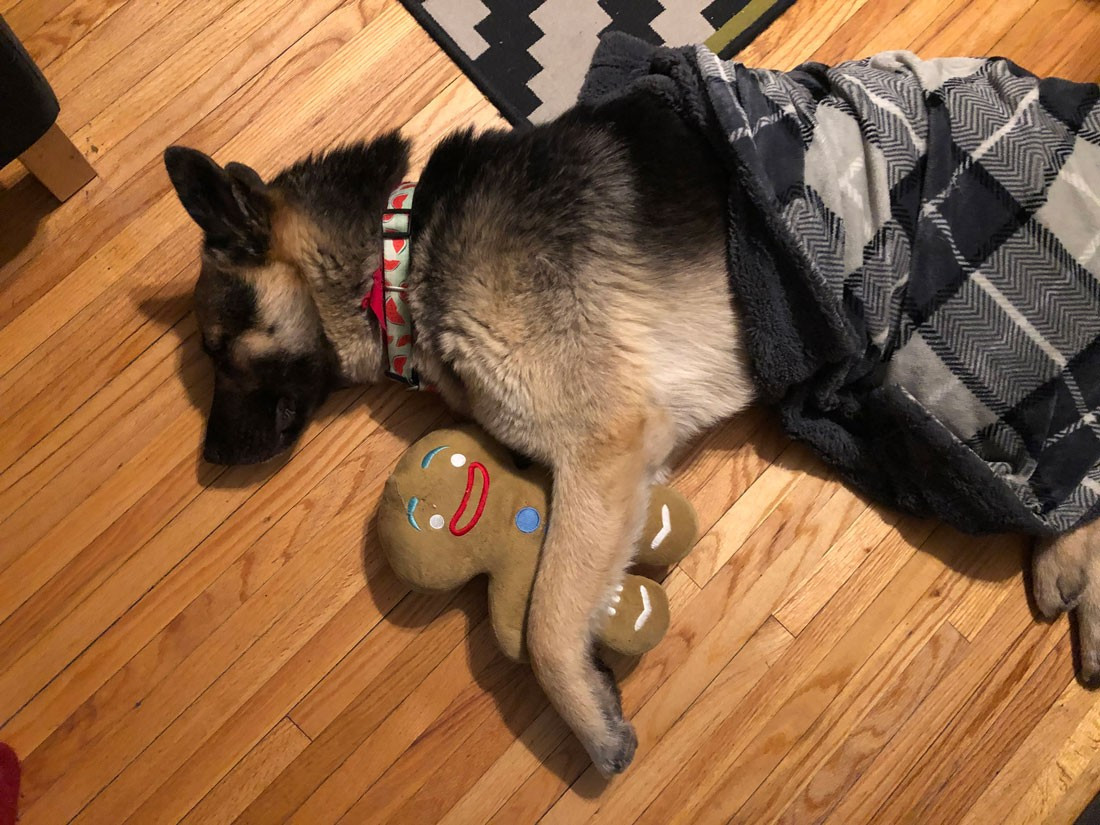Pandemic Pets
Winnipeg Humane Society’s essential services still needed during COVID-19
Back in the early days of the COVID-19 pandemic, many services closed their doors, but the Winnipeg Humane Society (WHS) soldiered on with their essential service of animal care and rescue. During this pandemic, many families have opened their homes to new pets.
“We had been begging for a dog forever,” 13-year-old Cooper Vint says. In late March, her family adopted a German shepherd named Deacon from the WHS.
“We had looked online for two different dogs, one of them being Deacon,” Vint says. When they met Deacon, “he was super excited but was also chill and calm. We were in love with this dog.”
Deacon is a German shepherd puppy who found his forever home during the pandemic. // Supplied image
According to WHS CEO Javier Schwersensky, adoption levels have gone down from last year. In April of 2019, 245 pets were adopted from the WHS. In 2020, the number went down to 185.
Part of the reason these numbers may be lower is due to the necessary changes in the adoption process during COVID-19.
“Now, we ask you to first look online and then give us a call. We do a little screening process as to what you are looking for and what we know about the different dog or cat that you want to adopt. You have to schedule an appointment, and then you have to have pretty firm intentions of considering adoption,” Schwersensky says.
Before the pandemic “for every 10 appointments that we had 10 people inquiring, maybe one or two were successful. Adoptions now are close to 80 per cent. The people who jump through these hoops to meet the animal actually end up adopting the animal.”
Pet health and veterinary costs can be a barrier to pet ownership for some people. When Vint’s family went to meet Deacon and another potential dog, they “were worried because he only has one eye, and at that point, he hadn’t had surgery to close the (damaged) eye.” Deacon ended up getting the surgery at WHS, and Vint’s family was able to adopt him.
“A lot of people are surrendering (their animals), because they don’t have the means to afford veterinary health. That means that we need to pay for the meds, and we need to find fosters to bring that animal back to health” in order to give that pet a second chance in a new home, Schwersenky says.
“We are always in need of financial support, and we are always in need of fosters. Animals that come here may require medical treatment, and the best place for any recovery is a house. It is not a forever commitment. The pet can stay from a few weeks to a month.”
Whether you can house a furry friend for a few weeks or offer it a forever home during these trying times, there are lots of animals looking for homes at the WHS.
“It’s definitely been a very great distraction, instead of just focusing on the negative,” Vint says. “He has been making all of our lives happier.”
Published in Volume 75, Number 01 of The Uniter (September 10, 2020)




